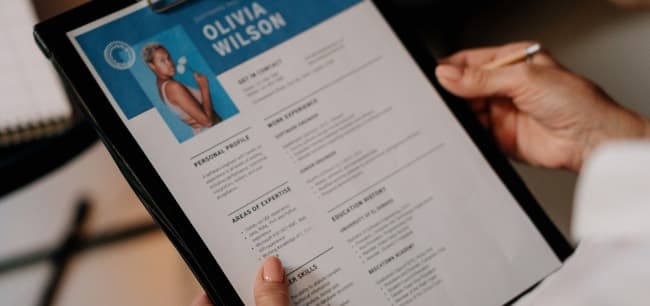Neurospicy job interview tips
Job interviews can be scary events, especially for people with ADHD or autism. You will find yourself in the spotlight and most people put themselves under pressure because of everything the interview can lead to: a new job or career. Excitement, nervousness, or anxiety can be normal experiences. Take a moment and ask yourself what you’re feeling and where in your body you’re feeling it.
tell me a story
Do a bit of research and learn about the person or company you’re interviewing with. Do you have a current or previous relationship with the company, its products, or services? Be prepared with a short story around this topic.
When the interviewer asks you about a competency, skill, or previous job, respond with a short story. Keep each story short, best is under two minutes. Tie together both personal and business interests. Express how these interests will benefit your future company, boss, and team.
Reread the job description and highlight your skills to fit the description.
The job description is a list of skills the employer wants. Your resume is simply a list of jobs and skills you have. Be ready to demonstrate how your current and previous skills transfer from one job to the next.
Even if you don’t have all the skills, degrees, or certifications an employer seeks, consider applying for the job. You may have a different quality that lands you the job.
Interviewers might ask you about a specific skill or part of a job. Think about all your jobs and skills through the CARL framework:
- Context: What was the business issue?
- Action: What action did you take and how did you align stakeholders?
- Result: What was the result of your action?
- Learning: What did you learn? What went well and what would you do better next time?
Be prepared with stories from previous jobs that demonstrate how you can be flexible.
Prospective employers want to know how you will benefit them, and if they hire you, they want to be proud of you as an employee. While preparing, be sure to stop and ask yourself how and why specific events in your work history happened— this will help move it from descriptions to reflections. Also, be ready to answer “why is that?” to any answer you provide in the interview.
Two things you can do to impress an interviewer is show a natural curiosity, and ask for feedback.
Before going live— rehearse!
This is the list part of the blog.
- Practice interviewing with someone who knows you and you trust. Their coaching and feedback can be invaluable.
- Make sure you know where you’re going. Not just to the building, where the office in the building is located.
- Pick out your clothes the night before. Make the interview day as stress-free as possible.
- Eat breakfast or lunch. Best not to interview on an empty stomach.
- Get at least 7 hours of sleep.
- The day of the interview, arrive 15 minutes early. If there are other people in the waiting area, interact with them. The waiting area could be part of the interview.
- Be you. Don’t get stressed. Keep it simple. Do your best.







